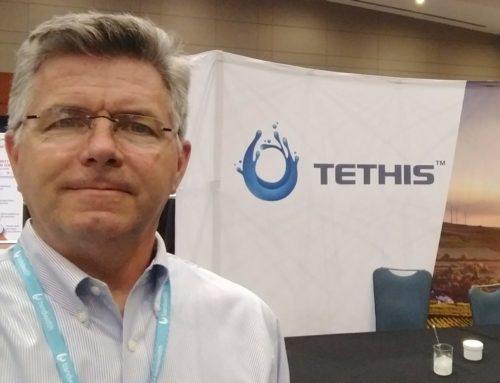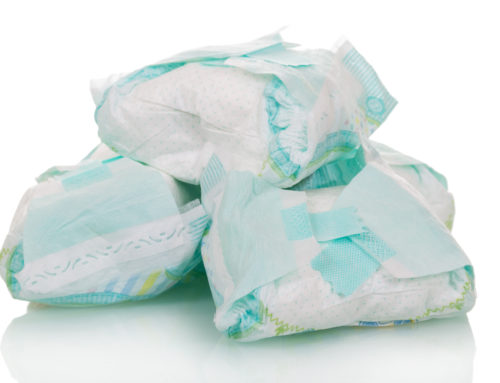Inspired by a love of physics and neighbor who flew model planes, Vladimiro Nettel, dreamt of being a pilot during his childhood years in Mexico City. But by the time he graduated from University, the aviation industry was in a downturn, so Vlad turned to Industrial Engineering. This set him on the path to leadership positions at Procter & Gamble and other top consumer products companies where he was central in developments and innovations in the markets for diapers and feminine hygiene products.
Today Vlad leads commercial efforts in the hygiene market for Tethis. We recently sat down with Vlad to learn more about his role and his predictions for the future of the industry:
Q: Tell us about the role you play at Tethis?
I joined the team back in 2015 as a consultant leading the commercial effort for disposable hygiene sales, and the relationships I have built during my career have helped me tremendously in this role. I work closely with the research and production teams on product development, international product distribution and commercialization as well as project management.
Q: What is your background?
I started my career in the disposable hygiene industry with a university internship program run by Procter & Gamble in Mexico in 1991. After about three years I was promoted and transferred to a new facility, still in Mexico but a completely different environment, a more horizontal leadership structure, and very cutting-edge management techniques. This piqued my interest in experimenting with new leadership approaches and introduced me to some of the great books of business (my recommendations include The Goal, The Greatest Salesman in the World, The 7 Habits of Highly Effective People, Theory of Constraints). All these learnings and experiences I draw on still as we build an entrepreneurial, collaborative and successful team here at Tethis.
I left Procter & Gamble for an opportunity at Hercules, a global manufacturer of chemical speciality products that was ultimately purchased by Eastman, where I learned more about the supplier-side. I was involved in sales of raw materials such as polypropylene fiber, used in nonwoven top sheet for baby diapers and feminine hygiene, and we were selling to major manufacturers around the world.
Q: In your history of working in the disposable hygiene industry, what has been your favorite aspect?
Shortly after my first child was born I came across the concept of biodegradable/compostable superabsorbents. I was fascinated and decided to spend a good part of my career pursuing this because I wanted to leave behind a better world for my children; I believe strongly that we must collectively work to find alternative materials and technologies to replace petrochemical-based ones.
Joining Tethis allowed me to continue my work in this area, and one of my favorite things about this company has been to see the rapid strides Tethis is making to improve and innovate; we are truly working with breakthrough technology.
Q: What role has entrepreneurship played in your career?
While at Hercules I traveled extensively through Latin America, visiting Columbia, Venezuela, and Brazil, building relationships in the industry, and eventually I came across Group Lysac, an entrepreneurial startup based in Canada and focusing in the area of superabsorbent innovation; I reached out to the company because I was fascinated and I suggested I build a distribution program for them. They said yes! This is how I got my start in superabsorbents and I very much enjoyed being a part of this fast-paced, entrepreneurial atmosphere; it reminds me a great deal of what we have here at Tethis.
Q: What excites you about the future of Tethis?
I’m excited because we are experiencing breakthroughs nearly every day, and as advancements continue, we’ll see the percentage petrochemical-based elements in these products decrease dramatically, in some cases, to zero. Given that nearly 500 billion disposable diapers and feminine hygiene products fill landfills per year (and one diaper can take hundreds of years to decompose), what excites me most is the big picture…the impact we are going to have on reducing waste and improving the carbon footprint of consumer products.



